Spring Visitors At The Greater Hazleton Rails To Trails, I Hope Some Of Them Stay
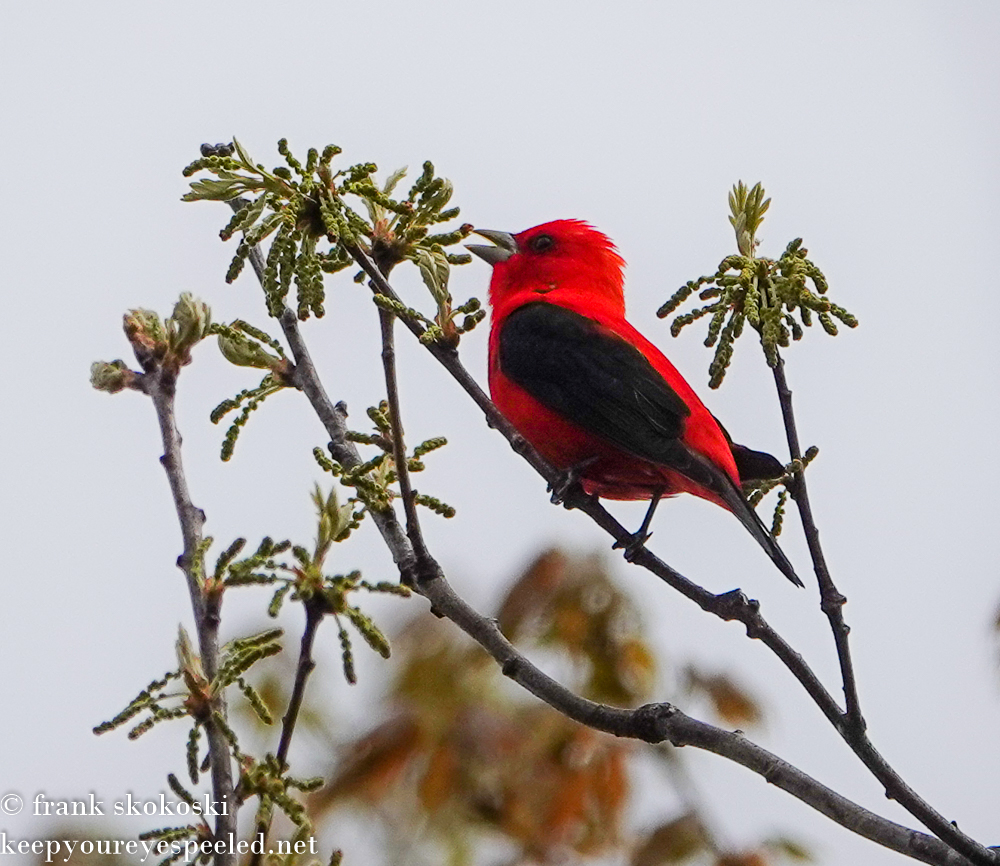
Rain was in the forecast again last Saturday here in Northeastern Pennsylvania. It was cloudy with a light drizzle when I decided to hike on the local Rails to Trails near my home in Hazle Township, Luzerne County. I wasn’t expecting to take photos on my hike because of the rain. I took my camera along anyways, and I was glad I did. The drizzle stopped when I arrived at the parking lot to the east access of trail on the Hazle Brook road. 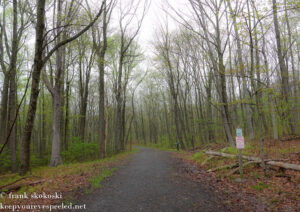
It was still overcast when I left my Jeep but I decided to bring my camera along on my hike since it looked like the rain may hold off. I was hoping I would see some of the many birds now migrating through our area. As soon as I left my Jeep I saw this critter scampering on the woodland floor. It would be the first of many chipmunks I would see and hear on my five mile hike. 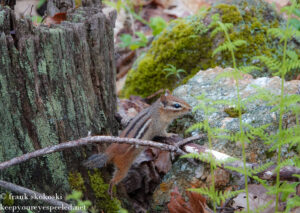
And, after walking only a short distance, I saw and heard many birds fluttering and singing in the treetops. This part of the trail was an old second growth mixed hardwood forest with tall oak, pine and maple trees. I saw and heard many birds, but, because of the overcast conditions, I was only able to photograph a few of them that were close to the ground, including this blue-headed vireo, 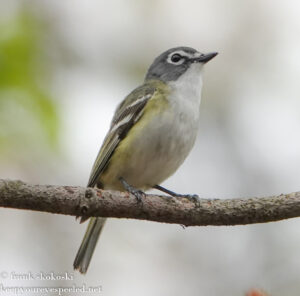
and this oven bird. It amazes me that these birds have traveled so far to breed here in Pennsylvania and areas to the north. The blue-headed vireo spends the Winter in the southern United States, Mexico and Central America. The oven birds travels even further to the Caribbean Islands and South America. 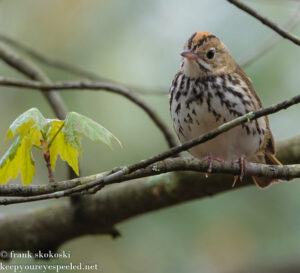
I continued my hike on the trail. Most of the oak trees were still leafless and bare but the birch and maple trees were beginning to get some light green leaves. The trail is about 1000 feet higher than the Susquehanna Wetlands in Salem Township which I visited the previous day. Almost all of the trees in the wetlands were covered in lush new green leaves. Not on our mountain, our growing season is a few weeks behind the lower elevations at the wetlands. 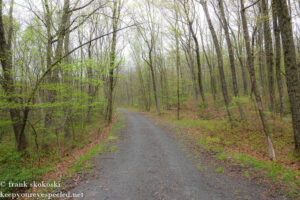
There were some Spring flowers, covered with rain drops, growing along the trails including early blue violets, 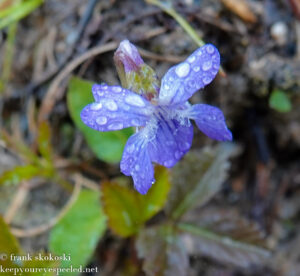
and plantain pussytoes. 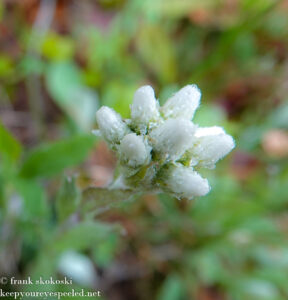 Low bush blueberries or as we locals call them “huckleberries” and
Low bush blueberries or as we locals call them “huckleberries” and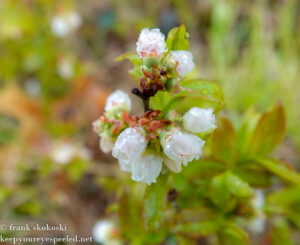
wild strawberries were also blooming along the trail.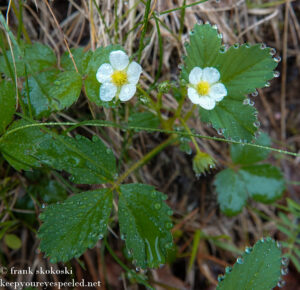
There were puddles and wetlands on a pole line near the trail where I thought I may see some bird activity. 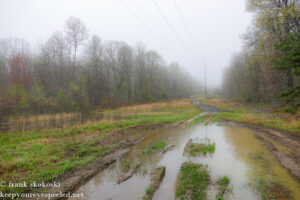
I did. I first heard, then saw this bird. It’s song sounds so much like it’s name, an eastern phoebe. These small flycatchers travel from the southern United States and eastern Mexico to return here to nest and sing for us in the Spring and Summer. . 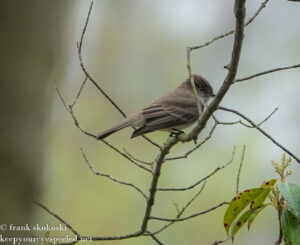
Another migratory bird, with a distinctive call that gives it it’s name was singing on a tree branch, a male eastern towhee. 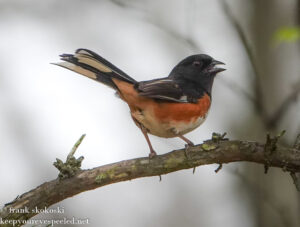
A Baltimore oriole was also singing in a tree near the wetlands. These birds are long distance migrants traveling to Mexico, the Caribbean and South America after breeding in our woodlands. They are beautiful birds. 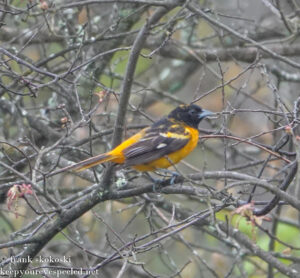
I saw one more bird at this small wetlands, a black and white warbler. These pretty warblers are also long distance migrants and live in the same areas as the Baltimore orioles in the Winter. 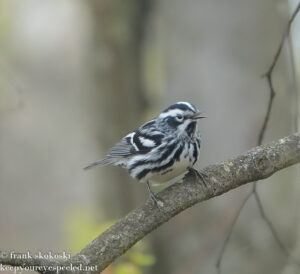
The trail continued along a small stream, where native trout still swim, that separates the woodlands to the north west and the reclaimed strip mines to the southeast. There is a lot more information on the Rails to Trail and it’s history in previous blog you can find with the search tool on my blog website. 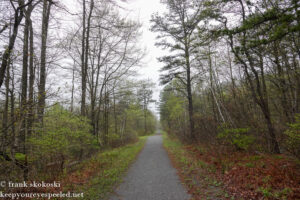
On the woodland side of the trail cinnamon ferns grew along the stream. 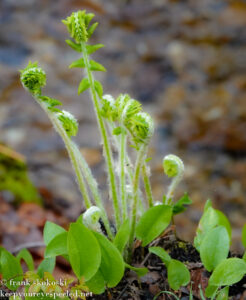
coltsfoot were blooming on the mine reclamation side of the trail. These are the seeds from the coltsfoot flowers. 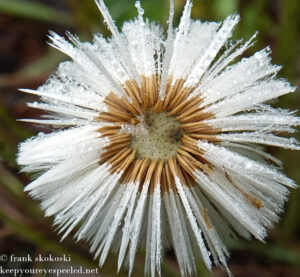
The trail continued through a culvert under a mine haul road and proceeded through a large mine reclamation area. This are was first deep mined and then a large part of the areas was strip mined. It was reclaimed about twenty years ago and now young, newly planted trees including birch, honey locust and pine, growing on both sides of the trail. 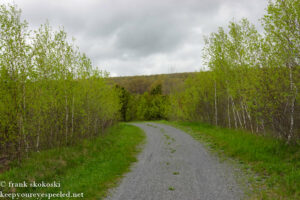
I saw a lot of bird activity in the trees, There were many migratory birds fluttering about, and it was easier to photograph then in the small trees. I saw a few beautiful indigo buntings. These birds also are long distance migrators, spending their Winters, in Central and South America and the Caribbean. The migrate at night and use the stars for guidance. Once again, I find this amazing. 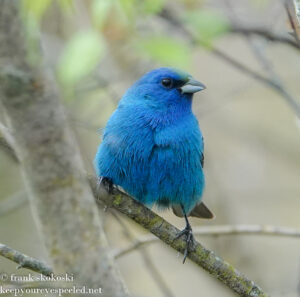
I also saw a prairie warbler singing on a tree branch along the trail. 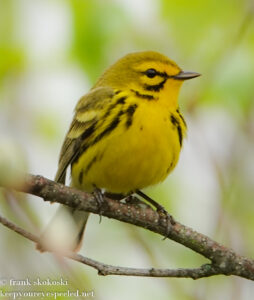
These pretty birds migrate from the Caribbean islands where they spend their Winters. 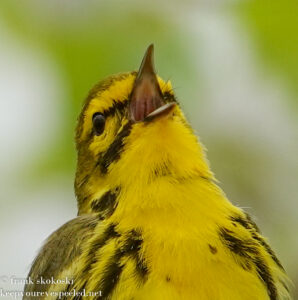
A chestnut-sided warbler sang for me, briefly , on a tree branch,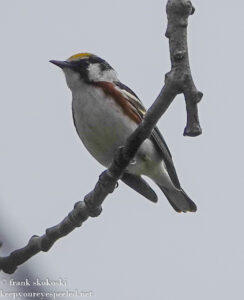
until it decided to fly away. It, too is a long distance migratory bird wintering in the Caribbean and northern South America. 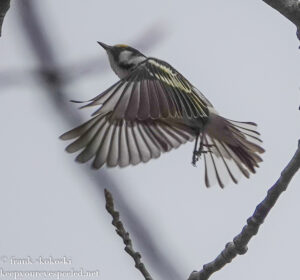
I also saw this brilliant colored bird, one of my favorites, a scarlet tanager. It probably migrates the furthest of all the birds I saw on my hike, wintering as far south as Peru. 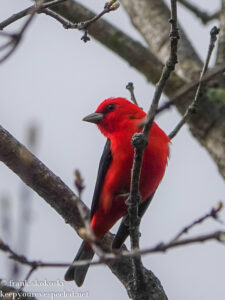
I continued on my hike crossing the bridge over the active railroad track. 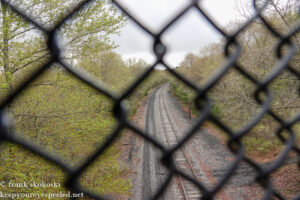
Here the trail passes through a small strip mined area that was not reclaimed. It then enters some second growth pine and hardwood woodlands,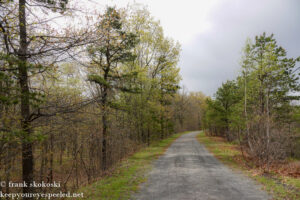
before it continues past one of the large tract of pine barrens along the trail. This is a link to an informative article on the pine barrens https://www.standardspeaker.com/archive/creatures-abound-in-barren-land-preserved-along-hazleton-trail/article_ddb0d56c-b391-58ba-8fa6-ef548f1abbd4.html. 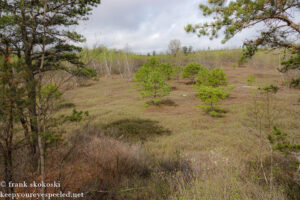
Near the pine barrens I met some friends, as I often do on my hike on the Rails to Trails, and we had a pleasant conversation before I begin my hike back to my Jeep. The sun broke through the clouds for a while making for some pleasant walking in the May sunshine. 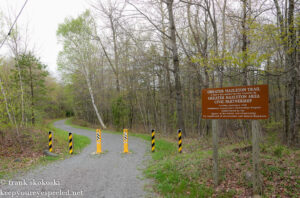
On the way I saw a lot of the same birds I encountered on my hike out, including this pretty scarlet tanager. 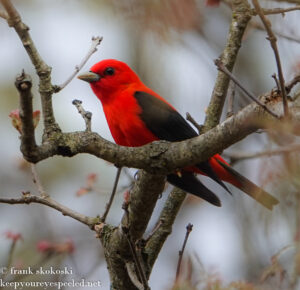
I also saw a few of these birds that don’t migrate but remain here during out long cold Winters, field sparrows,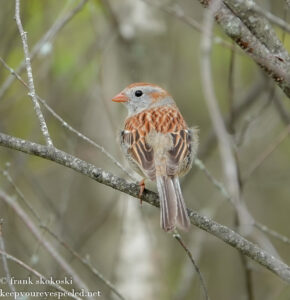
and their similar looking close relatives the chipping sparrows who do migrate south for the Winter. Here is a link to a gallery with more photos of the birds i saw on my hike on the Rails to Trails. Greater Hazleton Rails to Trails birds. May 14 2022. 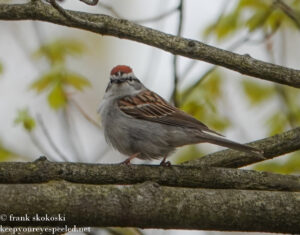
The clouds returned as I crossed the bridge, 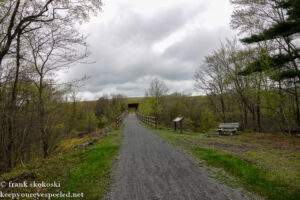
and I walked back through the reclamation area. It was later in the day and I didn’t see or hear as many of the migrating birds .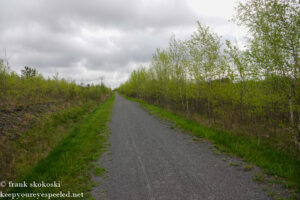
I did see this spicebush swallowtail butterfly. These butterfly butterflies feed only on leaves of the laurel family. 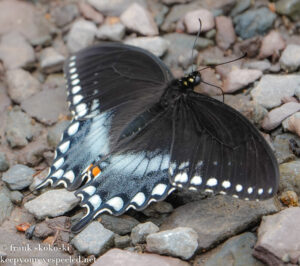
I finished my 5 mile hike as the clouds thickened and threatened rain again. I was glad I was able to get my hike in, with my camera, so I could share some of the beauty I found on this wonderful trail, and such an asset to our area. If you haven’t yet, take a walk out here, you won’t regret. Here is a link to a gallery with some more photos from my hike on the rails to trails. Greater Hazleton Rails to Trails May 14 2022. 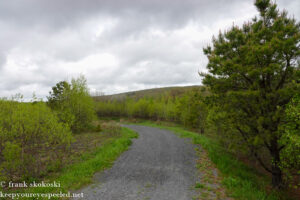
“There really is no correct way to hike the trail, and anyone who insists that there is ought not to worry so much about other people’s experiences. Hikers need to hike the trail that’s right for them…”
―
Categories
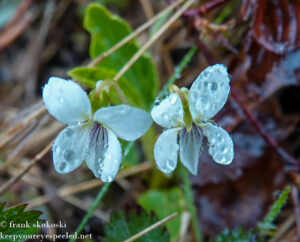
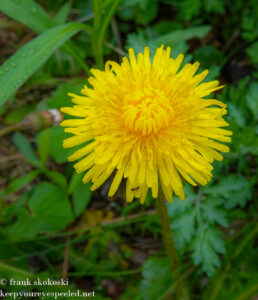
Recent Comments